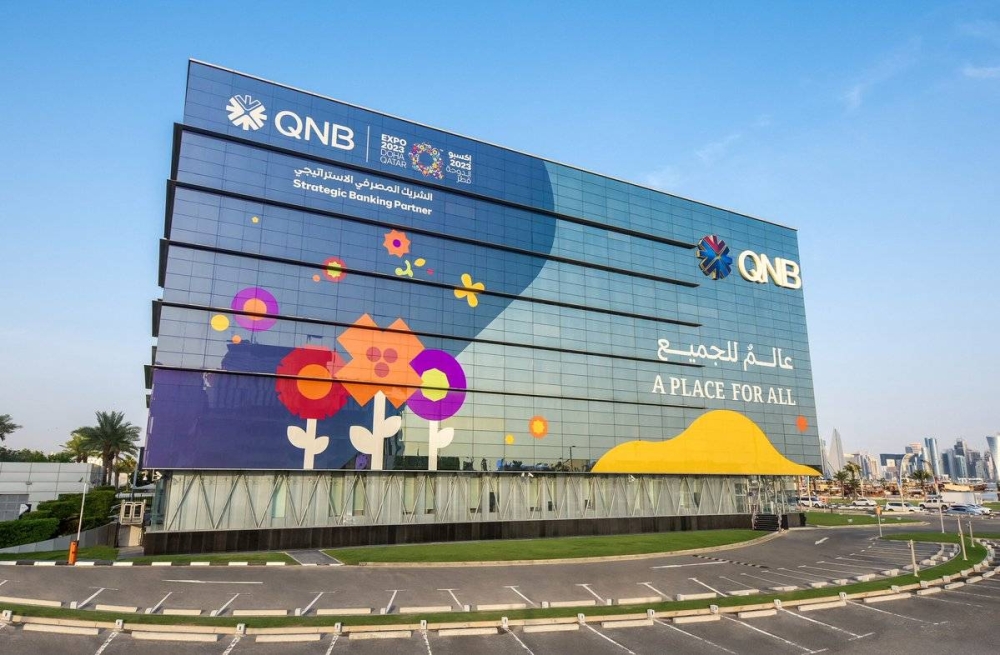Qatar National Bank (QNB) expected a substantial increase in capital inflows to emerging markets in the coming quarters, provided that global financial conditions ease on the back of heightened confidence in the continued decline of inflation in the United States.
In its weekly commentary, QNB said, "We started the year with a constructive view for emerging markets (EM) in 2024. The US Federal Reserve's (Fed) "dovish pivot" late last year, when forward guidance for rate cuts were first introduced, created a bullish investor sentiment globally. This, alongside resilient global growth and rapid disinflation, triggered a reversal of the risk-off market sentiment that had been prevailing in 2022 and part of 2023.
"The positive global macro backdrop pushed global capital towards EM. According to the Institute of International Finance (IIF), non-resident portfolio inflows to EM, which represent allocations from foreign investors into local public assets, experienced a significant shift from negative territory to positive in late 2023. Such inflows led to a rally that is reflected in robust returns across different EM asset classes since their bottom in October 2023, including gains of 17.6 percent for equities (MSCI EM) and 13.9 percent for bonds (J.P. Morgan EMBI Global).
"Despite negative inflation surprises, strong capital inflows and robust returns continued even after expectations about the Fed "dovish pivot" were significantly revised. In fact, rate cut expectations for 2024 were downgraded from close to 200 basis points (bps) to less than 50 bps. Traditionally, an aggressive re-pricing of US yields like this would "suck" capital outside EM back into the US or other mature markets. However, this time has so far been different.
"In our view, three main factors sustain the relatively high capital inflows into EM even during a significant increase of US Treasury yields: the expected direction of growth differentials, the incipient global manufacturing recovery, and the overall improvement of EM macroeconomic imbalances, as well as their policy credibility."
The bank pointed out, "First, the period of unexpected US economic outperformance seems to be either moderating or turning around altogether. This is reflected by the recent moves in the Citi Economic Surprise Index, a timely figure that measures the pace at which economic indicators are coming in above or below consensus forecasts. Since early this year, for the first time in months, data surprises are getting more positive globally and less positive in the US, suggesting an incoming revision of growth projections that should favour EM versus the US. Stronger relative EM economic performance should drive additional foreign capital to EM.
"Second, manufacturing is expected to be more supportive to EM and the global economy excluding the US over the coming months. After an unusually deep and long "global manufacturing recession," which has been in place since 2022, a positive turn towards an expansion has already started. The Global Manufacturing Purchasing Manager's Index (PMI), a timely indicator of whether activity is improving or deteriorating, has bottomed in July last year and improved thereafter. Activity has turned expansionary since February 2024. An expansion manufacturing cycle often gains momentum rapidly and lasts for about 1.5 years. This is expected to be supportive for EM, particularly in Factory Asia,' where manufacturing represents a more significant share of GDP. This should amplify the adjustment in expectations for EM-US growth differentials, as manufacturing represents only about 10 percent of the US economy.
"Third, macroeconomic fundamentals are currently stronger in most EM. Several advanced economies have been accumulating acute imbalances from excessive policy stimulus following the pandemic and the Russo-Ukrainian conflict, leading to issues such as high public debt and inflationary pressures. In contrast, most EM countries have been conservative with their fiscal policy space, in order to prevent too much debt accumulation or increasing external vulnerability. Furthermore, EM central banks in countries with a history of chronic inflation, like Brazil and Mexico, faced pressures to pre-emptively implement interest rate hikes early in the cycle. This proactive approach was crucial in preventing inflation from spiralling out of control and maintaining macroeconomic stability. As a result, several EM countries have gained policy credibility, which increases the attractiveness of their markets."
The bank concluded, "All in all, capital inflows to EM have been resilient in the face of the aggressive re-pricing of US Treasury yields. This has been supported by an expected turn in expectations for US-EM growth differentials, the beginning of an expansionary global manufacturing cycle, and overall strong fundamentals. Should global financial conditions ease on the back of higher confidence in US inflation continuing to decline, the inflows to EM could even increase substantially over the coming quarters." (QNA)

